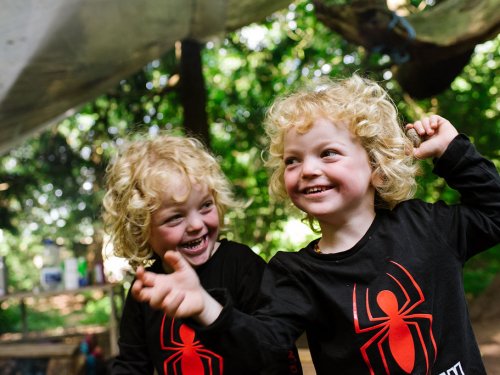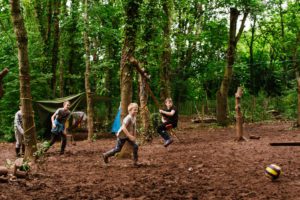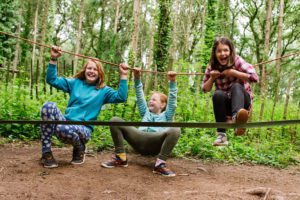
When we talk about learning through play, I think there’s a tendency to focus on early years, or at least children aged 7 and under. However, unstructured, spontaneous play has enormous benefits for children and young people of all ages. There’s no magic button that gets switched on a seventh birthday, removing the necessity for play. That’s why today, on National Forest School Day, we’re once again taking a look at play and why it’s so vital to our children and young people.

In our latest TOG Talk, released today, one of our directors, Tom, talks about what skills the workforce of the future will need. The World Economic Forum have identified what they deem to be the top ten skills that will be needed for the future workplace and these can be divided into four categories; problem solving, self management, working with people and technology use/development. Tom argues that eight of these top ten skills can be attained and developed through Forest School sessions and particularly through time spent in autonomous, non directed play. He uses the example of a group of children building a den to illustrate what skills they are learning through this deceptively ‘simple’ activity. Through den building these children needed to engage in verbal reasoning, they needed to create a shared vision, to collaborate and work as a team, some of them had to exhibit leadership skills, they had to manage resources and learn through trial and error. Through what was just a playful endeavour, these children were actually gaining vital transferable skills for their future lives. It’s worth noting that a large part of these skills are gained through allowing children and young people to fail. Failure is so important as a learning mechanism, particularly in supporting children in how they react to failure. The key is to guide them as they identify what went wrong and start to problem solve how to do it better next time. Then they can try again, learning through their mistakes and when successful, being rewarded with an immense sense of satisfaction and pride.
 Play for Fun
Play for FunOf course, whilst as adults we can easily get led down the road of looking for academic or measurable outcomes in everything, we mustn’t overlook the fact that in its essence, play is fun. Play brings joy to children and young people. Given that we only get one childhood, don’t we owe it to them to allow them to have as much fun as possible, to make as many happy memories as they can before they graduate into the (let’s face it) much more serious and often sedate world of adulthood. Play gives children the opportunity to be exactly who they’re meant to be, children. It gives them the chance to escape over scheduled, over structured lives and to be free, to be silly, to be creative, to laugh. Play lets them experiment with different identities, scenarios and feelings, it allows them to work through situations in their lives that they might be struggling to process. Play helps them bond with their friends and to make new friends. Play heals, repairs, nourishes their souls.
So today, on National Forest School Day we are shouting about how important play is and how brilliantly Forest School acts as a facilitator of this vital activity for children and young people of all ages and from all walks of life. So Happy Forest School Day folks, this weekend why not celebrate with a trip to your local woods….and a whole lot of playing!
Copyright © Outdoors Group Ltd 2021. All Rights Reserved.
Registered Office: The Outdoors Group, Western Lodge, Crediton, Devon, EX17 3NH. Company number 10755829
Terms & Conditions / Website Terms / Privacy Policy / Sitemap / Built with ♥ by Solve